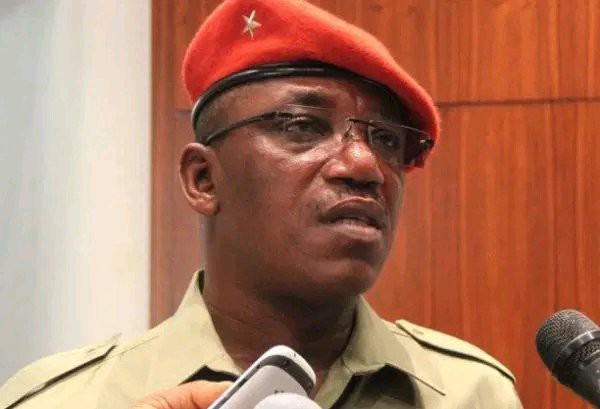According to the Vanguard Newspaper, Mr. Solomon Selcap Dalung, who once served as Minister of Youth and Sports during the Muhammadu Buhari administration, offers a critical reflection on the state of the nation under President Bola Tinubu’s leadership. In this interview, Dalung dissects various aspects of governance over the past two years, concluding that Tinubu’s presidency has significantly underdelivered and may face harsh electoral consequences from disenchanted citizens in future polls.
When asked to evaluate President Tinubu’s performance over the last two years in terms of responsible governance, Dalung did not mince words.
According to him, the country has descended into an unprecedented level of dysfunction. He argues that genuine governance is measured by how it enhances citizens’ welfare through principles like openness, fairness, and accountability—elements he claims are glaringly absent in Tinubu’s tenure.
“In those key areas—transparency, justice, and accountability—there’s nothing to show,” he said. “If I were to give a score, it would be below 10 percent. That’s how dismal the situation is.”
He further highlighted that the rule of law has been trampled in recent times. Dalung metaphorically described the legal system as being suffocated, saying that fundamental legal principles have been overridden by executive overreach. He pointed to the recent political chaos in Rivers State, where, in his view, a state of emergency was imposed without following due constitutional processes—a move rubber-stamped by both the legislature and the presidency, according to him.
Although the Constitution permits the president to declare emergencies, Dalung emphasized that such actions must go through proper legal channels, including publication in official records and legislative ratification. He criticized the president for bypassing these steps and appointing a Sole Administrator prematurely. He argued that these abuses, combined with clampdowns on critics and civil society voices, have seriously eroded the integrity of the legal system.
Dalung went on to discuss economic concerns, noting that despite the removal of fuel subsidies—which increased government revenue—living conditions have deteriorated sharply. He lamented that inflation has soared and poverty has intensified to levels not seen even during the Nigerian civil war, except in regions directly affected by conflict. He described the administration’s poverty reduction agenda as hollow and performative, claiming that official narratives about economic recovery are at odds with the suffering experienced by ordinary Nigerians.
According to Dalung, the government’s economic rhetoric is merely decorative. “They talk about injecting funds into poverty alleviation, yet the hardship multiplies by the day,” he said.
He also accused the Tinubu administration of exclusionary practices, especially in the area of political appointments. He claimed that the government’s decisions are driven more by favoritism and personal loyalty than merit or national interest. He characterized the current leadership as a “Kakistocracy”—a system led by the least qualified—rather than a functional democracy.
Dalung expressed concern over the marginalization of minority groups and asserted that the administration has deepened ethnic and regional divisions. He criticized the culture of nepotism and favoritism, saying that associates and even informal companions of those in power are prioritized over competent citizens.
When discussing the government’s stance on corruption, Dalung accused the administration of fostering rather than fighting it. He cited the case of Dr. Betta Edu, the suspended Minister of Humanitarian Affairs, who was implicated in the alleged mismanagement of N72 billion within just six months in office. He pointed to her controversial decision to transfer N300 million from a public account to a private one as emblematic of deeper systemic issues.
He went further to allege that the ruling class asks citizens to endure economic sacrifices under the guise of a “renewed hope” agenda, while they themselves continue to squander public funds for personal indulgence. Dalung criticized the opulent lifestyles of those close to power, including the president’s family, claiming their conduct reflects a government more interested in self-enrichment than accountability.
Dalung suggested that the administration is not merely negligent in its anti-corruption campaign but actively enabling corrupt practices. “The signs are clear,” he said. “This government isn’t battling corruption—it’s nurturing it.”
Hear him speak: “It is not even about appointments – because the Muslim North, even if it is about appointments, has no reason to oppose him, because 90% of those he appoints in the North are from the Muslim North – but because he has declared war against the poor, and all his appointees cannot make any impact, neither can they convince anybody to trust him again. So, that is the issue. It is not the issue of whether he is from the South or not.”
Explore More News By Using The Button Below.

